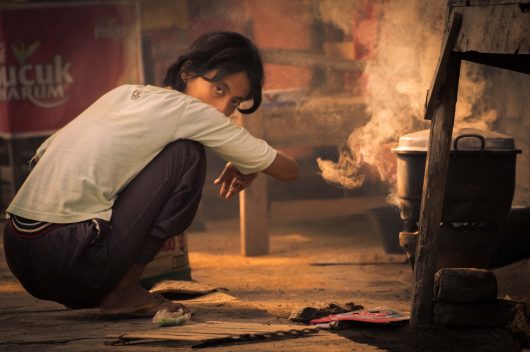Millennium Challenge Corporation Invests in Indonesia

The U.S. foreign aid organization, the Millennium Challenge Corporation (MCC), invested $600 million in economic stimulus to reduce poverty in Indonesia that entered into force in 2013. The MCC forms five-year compact grants for countries that meet eligibility criteria and displays “good governance, economic freedom and investment in their citizens”.
According to the MCC, the Indonesia Compact consists of three projects, which aim to facilitate the increased quality of “health and nutrition, sustainable land and energy management, and modernizing the system of government procurement of public goods and services.”
To assist with the goal of “sustainable land and energy management,” part of the Indonesia Compact is the Green Prosperity project. This project accounts for $332.5 million of the Indonesia Compact investment funding, encapsulating efforts to expand economic conduits while decreasing emissions of greenhouse gases. Indonesia’s elimination of fuel subsidies has been positive and growth is expected to reach 5.5 percent in 2017. The regime’s ability to set fuel prices, however, is still a point of concern, as cited in a June 2016 report from the Organisation for Economic Co-operation and Development (OECD).
Another part of the Indonesia Compact is the Community-Based Health and Nutrition to Reduce Stunting Project, which is a child and youth-based initiative aiming to decrease incidents of malnutrition that impact Indonesians across 5,400 villages. The World Food Programme cites that the nation loses more than $5 billion per year due to lost productivity as a result of malnutrition. An investment of $134.2 million of the $600 million is going towards the Community-Based Health and Nutrition to Reduce Stunting Project.
The World Bank notes that 37.2 percent of children under the age of five experience stunting. These developmental hindrances are pivotal to providing transparency into the double burden of malnutrition. Paired with an increased risk of developing non-communicable diseases like heart disease, stunting at a young age can reduce productivity beginning in adolescence.
The MCC has allocated $65 million of the Indonesia Compact investment to the Procurement Modernization Project. The goal of this project is to strengthen the country’s public procurement system. The OECD reported that provinces and districts in Indonesia are spending 40 percent of total public funds, a rate of fiscal decentralization higher than any other East Asian country apart from China.
The compact also accounts for inequality by the implementation of the Social and Gender Integration Plan (SGIP) that ensures equal opportunity across genders and social structures for those participating in compact programs.
– Amber Bailey
Photo: Flickr
